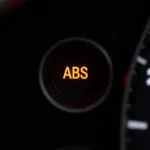You shelled out good money for a car diagnostic, hoping to finally fix your automotive woes. You breathed a sigh of relief when the mechanic handed you the report, confident that the problem was solved. But then, just a day later, your car throws another tantrum. The frustration is real, right?
So, what happened? Why did your car break down again after an expensive diagnostic test? Unfortunately, the “paid for diagnostic, next day car broke again” scenario is more common than you might think. It doesn’t necessarily mean your mechanic was incompetent or trying to rip you off. Let’s delve into the potential reasons behind this frustrating experience and explore how to navigate these situations effectively.
Why a Diagnostic Test Isn’t Always a Magic Bullet
A car diagnostic test, while incredibly helpful, isn’t a crystal ball. It can reveal existing issues, but it can’t predict future ones or always pinpoint every single problem. Here’s why:
- Intermittent Problems: Some car problems are like that annoying friend who only shows up uninvited. They’re intermittent, meaning they come and go without a clear pattern. A diagnostic test might not catch these gremlins if they’re not actively acting up during the scan.
- Multiple Issues: Your car might be harboring multiple issues simultaneously. The diagnostic might flag the most prominent one, but others could lurk beneath the surface, ready to rear their ugly heads later.
- Wear and Tear: Car components have a lifespan. Even if a diagnostic gives your vehicle a clean bill of health today, normal wear and tear could lead to a breakdown tomorrow.
- Human Error: Mechanics, like all of us, are human. There’s always a slight chance of misdiagnosis, especially if the symptoms are vague or the problem is complex.
Common Reasons for Car Breakdowns After a Diagnostic Test
Let’s get more specific. Here are some common scenarios where a car might break down shortly after a diagnostic test:
- Ignoring Recommended Repairs: Did your mechanic recommend additional services or repairs beyond addressing the immediate issue flagged by the diagnostic test? Sometimes, putting off these recommendations can lead to more significant problems down the line.
- Overlooking Underlying Issues: A failing sensor might trigger a “check engine” light, but the real culprit could be a deeper mechanical issue that the sensor is trying to compensate for.
- Loose Connections or Wiring: A temporary fix or loose connection during the repair process might hold up for a short time but fail shortly after.
- Defective Parts: In rare cases, a newly installed part might be faulty, leading to a recurrence of the original problem.
What to Do When Your Car Pulls a Repeat Performance
Experiencing a car breakdown after a paid diagnostic is incredibly frustrating, but don’t despair. Here’s a game plan:
- Stay Calm and Document: Take a deep breath and jot down the symptoms your car is experiencing. When did they start? How severe are they?
- Contact the Original Mechanic: Go back to the mechanic who performed the initial diagnostic test. Explain the situation and provide detailed information about the new symptoms. A reputable mechanic will want to investigate further.
- Inquire About Warranties: Most reputable mechanics offer warranties on their work and the parts they install. If the breakdown is related to the previous repair or a faulty part, the warranty might cover the cost of further diagnosis and repair.
- Consider a Second Opinion: If you’re not satisfied with the original mechanic’s response or explanation, don’t hesitate to seek a second opinion from another trusted mechanic.
Protecting Yourself and Your Wallet
- Choose Reputable Mechanics: Do your research and select a mechanic with a proven track record of accurate diagnoses and quality repairs. Ask friends, family, or online communities for recommendations.
- Communicate Clearly: Be upfront about your concerns and the car’s history. The more information you provide, the better equipped your mechanic will be to diagnose and fix the problem accurately.
- Get Everything in Writing: Always obtain a written estimate and invoice that details the diagnostic codes, recommended repairs, parts used, labor costs, and warranty information. This documentation will be invaluable if any disputes or issues arise later.
Remember, car repairs can be complex. By understanding the limitations of diagnostic tests, knowing the right questions to ask, and partnering with a trustworthy mechanic, you can navigate car trouble with greater confidence and minimize the chances of facing the dreaded “paid for diagnostic, next day car broke again” situation.

